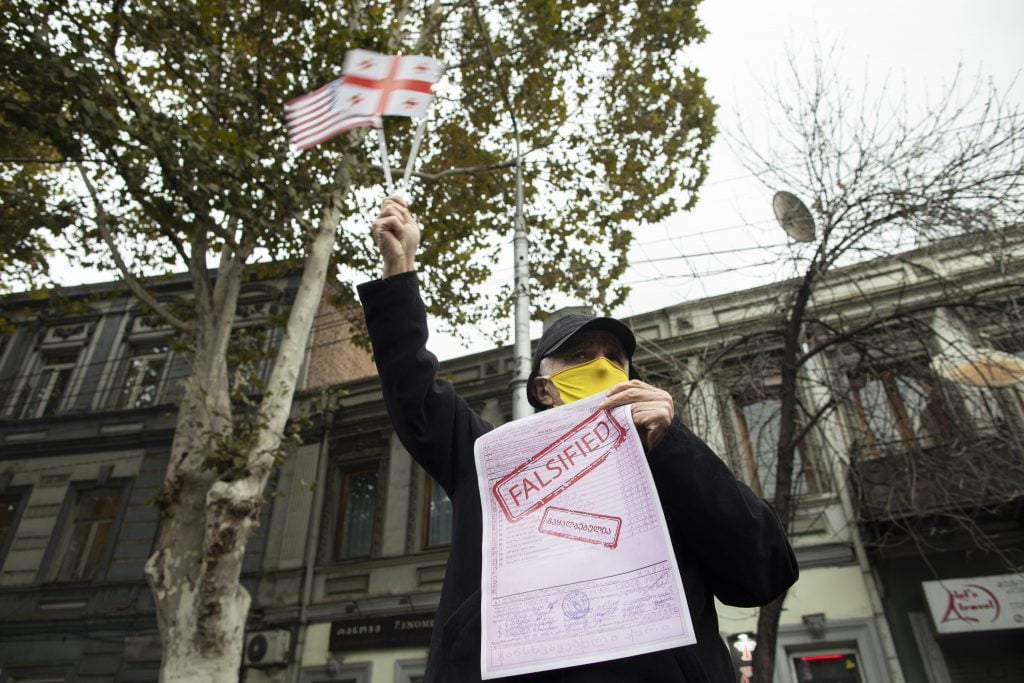By Jelger Groeneveld, analyst, foreign policy advisor in a Dutch liberal party
This week ruling Georgian Dream announced it would seek to suspend state funding to political parties that continue their boycott of Parliament, by proposing the introduction of a bill to that effect. So far five out of eight opposition parties/blocs winning seats in Parliament according to the official, but disputed results have officially canceled their parliamentary mandates.
The announcement of the Georgian Dream party to suspend state funding for boycotting opposition parties led to the postponement of a final fifth round of talks between the two sides. The opposition remains committed to its demands of snap elections, the resignation of Central Election Commission chair Tamar Zhvania and the release of alleged political prisoners. All of which have been categorically rejected by the ruling party.
Furthermore, the Georgian Dream said it would seek to terminate the election registration of a party if a person not allowed to vote in Georgia participates in its election campaign as a leader. This has been directly aimed at the main opposition party United National Movement (UNM) of ex-President Mikheil Saakashvili who led the campaign from abroad. UNM won 28% of the vote and leads the united boycott efforts.
European family of democracies
The Georgian Dream party has campaigned to apply for European Union membership in 2024. Of course, this was a hallucinatory election promise. Yet, the verbally expressed ambitions to become a “European democracy” and becoming part of the “European family” is precisely what the ruling party can and should be held to. The aforementioned steps are highly antidemocratic in nature and do not express any true intent to progress to that “European democracy.”
Moreover, Georgia has committed itself to the EU Association Agreement in 2014, something the Georgian Dream proudly holds to its credit. In this Agreement, Georgia agreed to a few political clauses such as the commitment to
“further strengthening respect for fundamental freedoms, human rights, including the rights of persons belonging to minorities, democratic principles, the rule of law, and good governance, based on common values of the Parties…”
It is obvious the latest developments are a further regression on this commitment. It is up to Georgian political and civil society forces and the European Union to hold the ruling team to these principles. Respecting democratic principles, seeking democratic conflict resolution through dialogue, not punishment of dissent, is core to the European values based family.
The European Union has the power to put a price on this regression within the principles of the Association Agreement. It is time the European honeymoon of the ruling political class in Georgia is over. In the interest of Georgian democracy and the Eastern Partnership project, the EU should tighten the screws to make Georgian Dream retreat on its current course and make clear it cannot walk away unscathed from a disputed election result and repression of the opposition by infringing on basic principles of democracy as a European partner.
And the Georgian Dream team should make clear on which side of this crossroad it wants to be.

